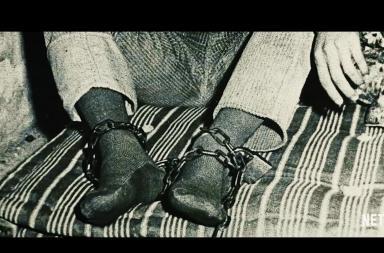This post is also available in:  Italiano (Italian)
Italiano (Italian)
The first three measures by the new Meloni government, the right-centre coalition which won the 25 September elections, have been a) to block the reform promoted by the Parliament to mitigate the harsher norms which regulate life prison sentences and other juridical innovations b) to block NGOs ships which save migrants in the Mediterranean sea, preventing disembarkation in a safe Italian harbour and c) to introduce a new norm in the penal code which make raves and free parties a crime.
The facts
On the 29th October more than 3.000 people met near Modena (northern Italy, Emilia Romagna region), coming from all over the country and also from other European countries, for the WitchTek 2022, the Halloween free party self-organized (without formal authorization by the local public authorities) for the third year by some Italian crews. The location was an industrial shed abandoned for years, in the open countryside, out of the city, with no real impact on local residents or the environment (the only inconveniences for people were some roadblocks by the police). People wished as usual to listen to music and to dance and, yes, also use drugs, up until the 1st November, thanks to free access to the event and self-organization. Some Harm reduction teams coming from different regions were on the spot to make the setting safer, through information, chill out, drug checking and first aid if necessary, in collaboration with the Public Health emergency units. No violence nor any type of incident occurred. Everything was proceeding in a safe and peaceful way.
Nevertheless, on the 30th October the new Interior Minister, Matteo Piantedosi, decided that the event had to be immediately blocked, participants dispersed and the building cleared out, sending hundreds of policemen in riot gear to the scene. Simultaneously with this order, Piantedosi announced the immediate proposal of introducing a new article of the Penal Code to “fill a regulatory gap” in order to be more effective in repressing free parties. In just 24 hours, on the 31st October, the new article was ready to be discussed at the Ministers Council, as an absolute political priority.
Fortunately, Piantedosi’s order was not implemented: the city Mayor and the local police decided to take time and negotiated for a peaceful evacuation without breaking into the shed, and the crews and the participants were willing to negotiate too, to avoid any risk of violence by the police and a hard conflict. The evacuation occured without any incident. Participants renounced the last night of music and dance, collected rubbish, cleaned the shed, then left Modena in dribs and drabs.
Nevertheless, they paid a high price: 1,380 people and 337 cars were identified and registered by the police, 25 Dutch people expelled, 14 organizers reported to the judicial authority, 14 sound systems seized for a total amount of 150,000 euros.
The new “rave crime”
It is not the first time that in Italy the crews that organize free parties have been sanctioned: notwithstanding raves would be primarily considered as cultural and social events self-organized outside of a commercial dimension, and not as crimes, promoters have often had to deal with the penal code, mostly with regard to offences against private property, when they occupy private buildings or lands, and with other administrative norms which regulate public events. None of these norms, have ever been able to stop or prevent rave parties: the lesson learned over so many years is that repression is not effective against events which are so deeply rooted in peoples’ culture and social rituals, and the effects of repression could be only to increase the clandestine nature of the event and subsequent risks for participants’ health and safety.
Against any evidence, Piantedosi’s perspective is to increase repression, fulfilling the so called “regulatory gap” through a norm specifically addressed to raves.
The d.l. (decree law) n. 162/22 of 31.10.22 introduces a new article (art. 434-bis Penal Code, https://www.fuoriluogo.it/speciali/rave/norme-contro-i-rave-il-testo-del-decreto-legge/) which sanctions the crime of “invasion of lands or buildings to hold events dangerous for public order, or public safety or public health”.
This shifts the supposed offences related to raves from the Penal Code section dealing with private property to the one dealing with major crimes such as slaughter, fire, flood, train wreck, explosive manufacture.
The minimum number of people involved in this crime is 50.
The sanctions provided to organizers are prison sanctions from 3 to 6 years and fines from 1,000 to 10,000, and the seizure of all stuff and equipment.
Also, participants can be sanctioned with reduced penalties (unspecified in the article text)
Furthermore, the proposal establishes a change in the Anti-Mafia law, in order to extend special personal prevention norms also to rave organizers.
The consequence of this measure by the government on a juridical level is to exclude rave organizers from some extenuating circumstances and alternatives to prison related to minor crimes, due to the very high maximum penalty. Also, the very generic formulation of events dangerous for public order, or public safety or public health carries a high risk of criminalizing not only every kind of free party but also many other kinds of social events. Finally, it is most likely to be anti-constitutional (art 17, freedom of assembly), as there are many circumstances in which previous permission for public events by the local authorities is not required.
From a social, political and symbolic perspective, this new crime asserts that a rave party is anyway and always and primarily a danger for participants and for the community. This orients public opinion in supporting the repressive choice, also thanks to a strong and persuasive mass media campaign based on fake and manipulated communication. The use of drugs during these events is emphasised, showed as incontrollable and represented in a distorted way.
In presenting his law, Minister Piantedosi said that in many European countries rave parties are sanctioned, even if, on the contrary, it is really difficult to find such harsh measures in any other European legal regulation.
What happens now
The Decree law is in force since 1st November. It must be discussed, possibly emended and approved by the Parliament by the end of December. If it is not approved it will expire. The government itself is working on some changes, considering the numerous criticisms from a juridical perspective, which may lead to its rejection by the Parliament.
A broad and plural movement is opposed to the new ‘rave crime’.
Many CSOs, professionals, PWUDs organizations, harm reduction teams, people from the world of culture and policy are taking a position against it and asking for the new law to be annulled.
Many jurists support the hypothesis of the anti-constitutionalist basis of this proposed law and many others contest the violation of the fundamental principle of proportionality of penalties.
CSOs and harm reduction professionals are going to inform and sensitize policy makers who will have the responsibility to vote for or against the new law in Parliament, about what a free party is, the possibility to promote participants health and wellbeing during such events thanks to an effective harm reduction and risks limitation system of interventions, the evidence-based failure of the repressive approach, the rights to assembly and associations and the fight against stigma. Also, a widespread information campaign with the media is going on, considering the impressive amount of fake news concerning free parties.
Great attention is also being paid to the risk that such a norm may include many other public events, such as social demonstrations and political protests, thus limiting the freedom of all citizens. This is of course a crucial point, but CSOs, PWUDs and Harm reduction professionals will need to be on guard that in defending other kinds of public events and freedom, rave parties do not become the ‘sacrificial victim’ of an unacceptable mediation.
Follow the ‘rave crime’ developments on Forum Droghe website, www.fuoriluogo.it/rave




